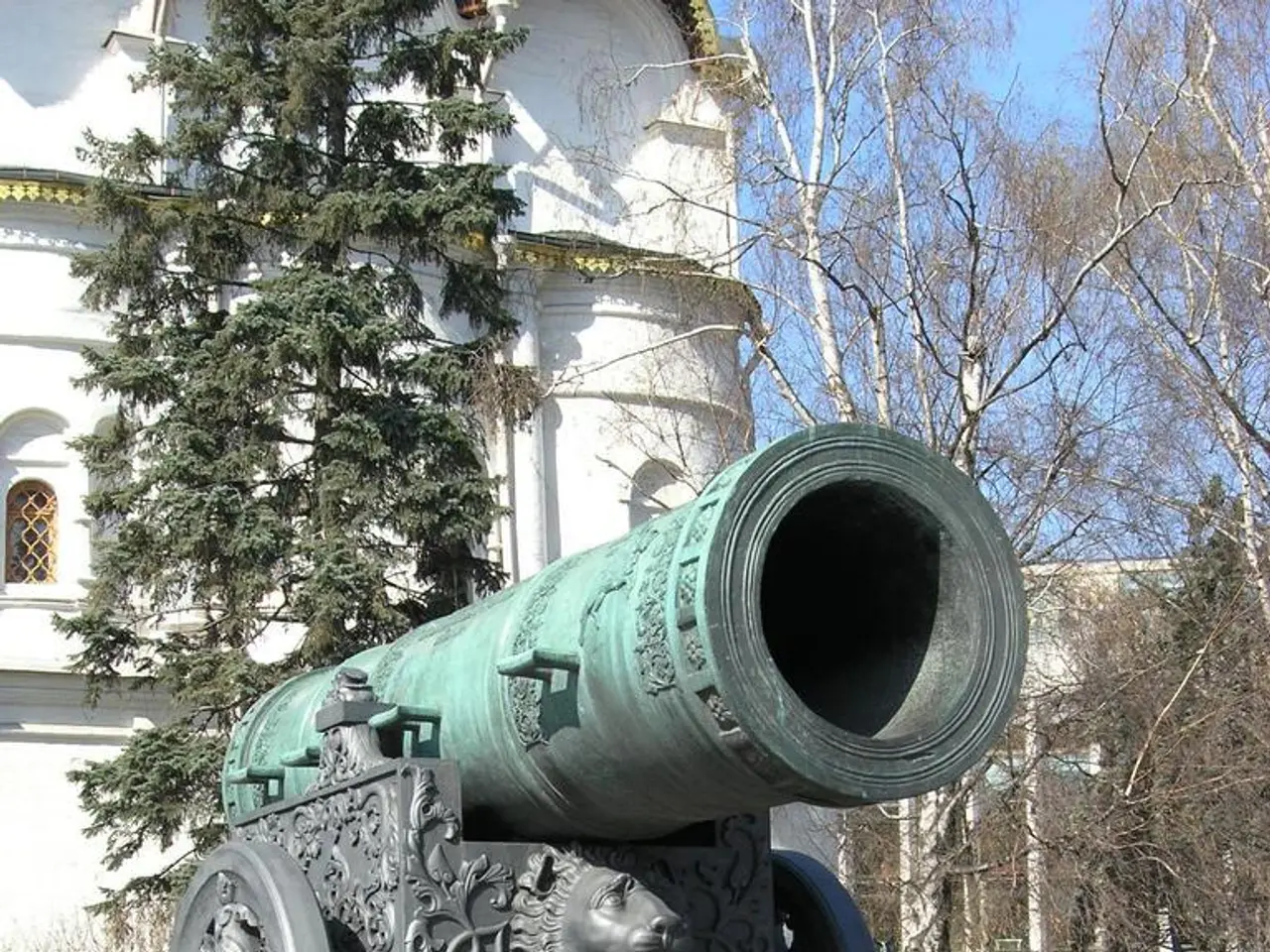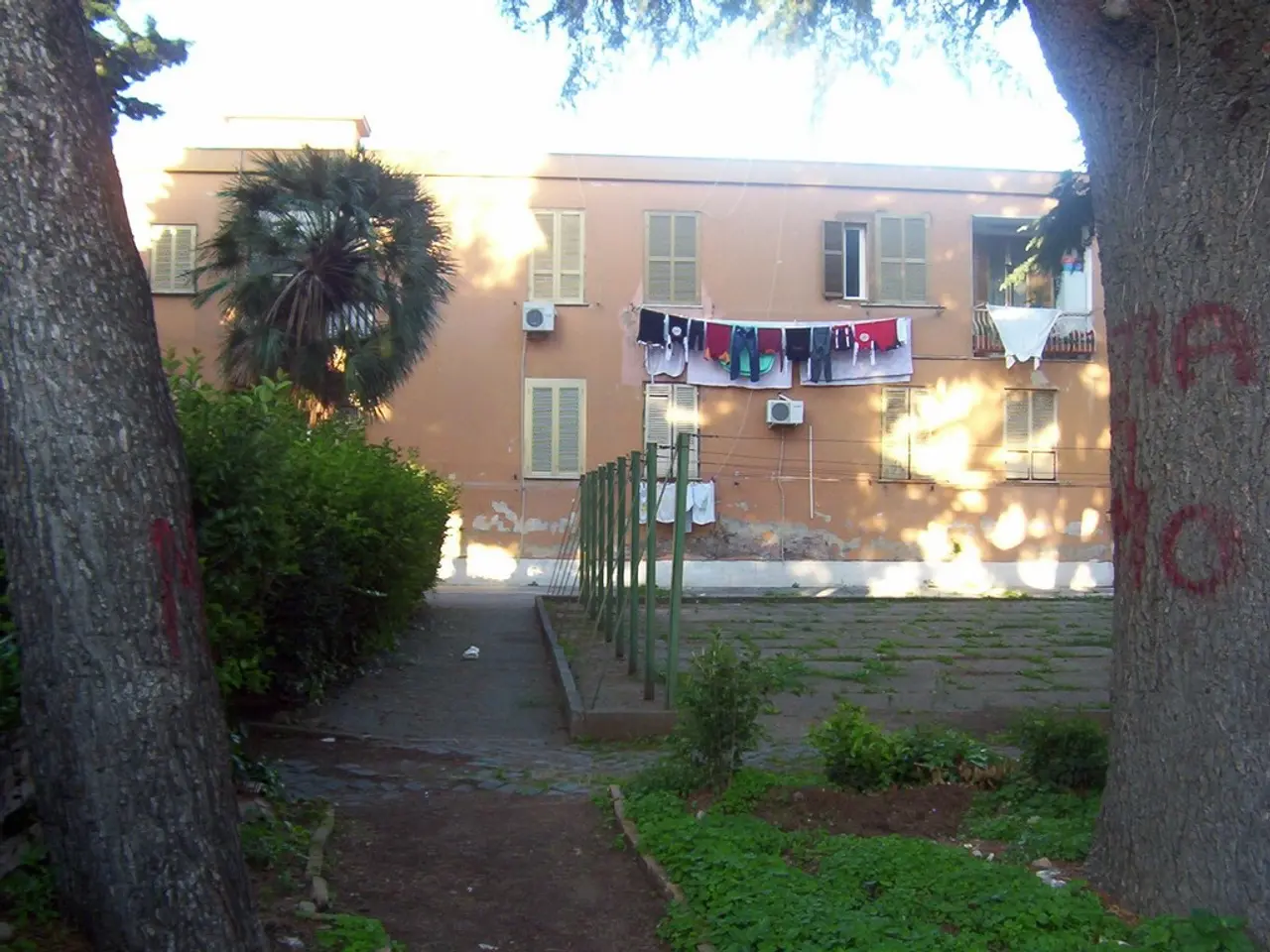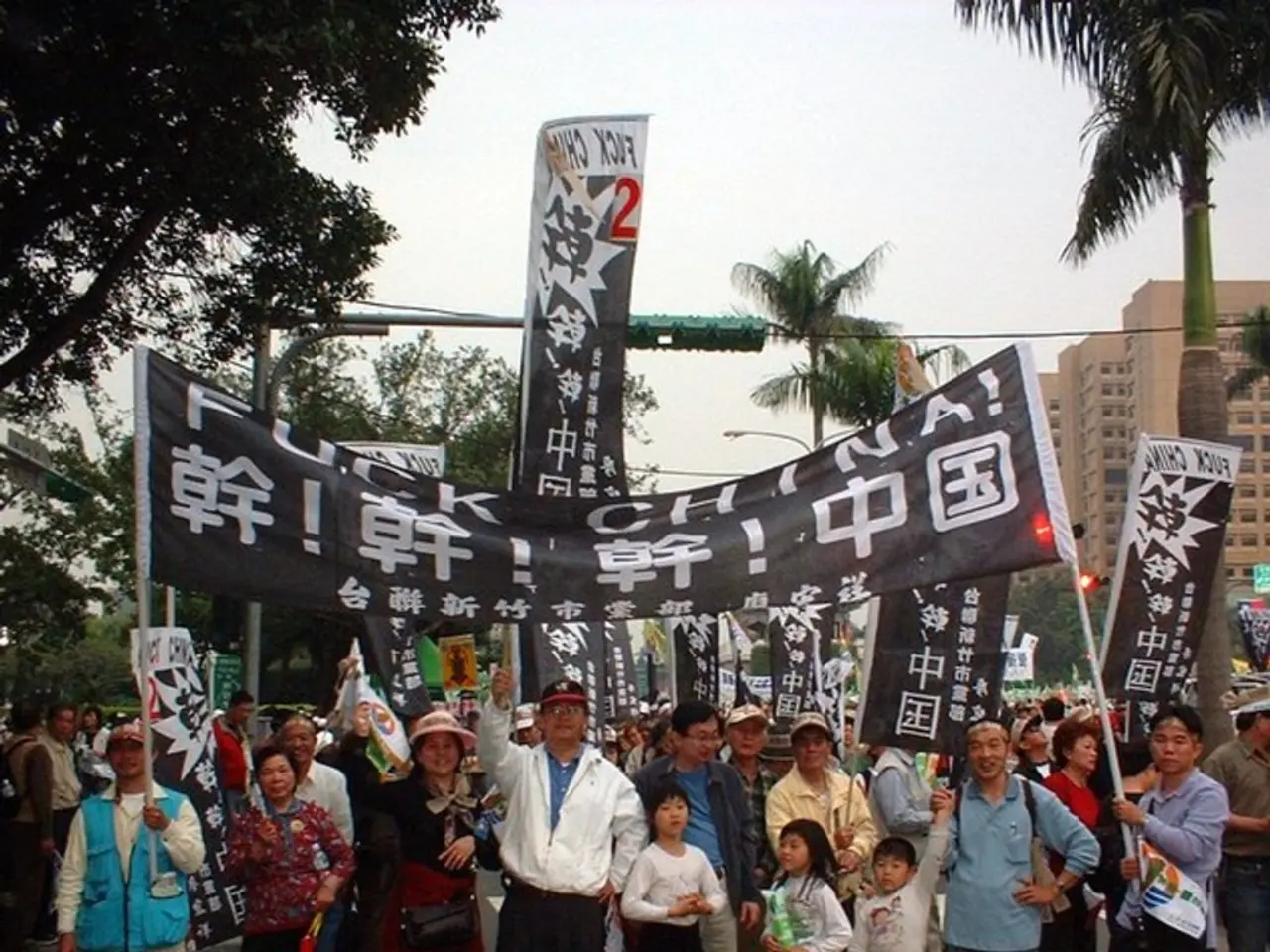Russia has no intention of imposing a halt on its deployment of missiles, according to Medvedev's statement.
Russia has announced that it will no longer be bound by the moratorium on deploying medium and shorter-range land-based missiles, a move that comes in response to what it perceives as increasing threats from the United States and NATO countries. This decision was made public by the Russian Foreign Ministry, with Dmitry Medvedev, the Russian Security Council Deputy Chair, calling for further action following this decision.
The Russian Foreign Ministry's statement underscores the perceived threat from the actions of the "collective West" to strategic security in regions adjacent to Russia. Nikolai Patrushev, Assistant to the President of Russia, claims that NATO is escalating military threats towards Russia in its maritime zones, particularly in the Baltic and Black Sea regions. Patrushev identifies these areas as particularly dangerous due to increasing NATO exercises and deployment of missile defense systems.
The lifting of the moratorium has significant implications for regional security and global stability. The deployment of Russian intermediate-range missiles in Belarus and potentially other locations near NATO borders raises tensions in Eastern Europe and the Asia-Pacific region, intensifying the arms race and increasing military risks in these geopolitically sensitive areas.
Russia’s decision undermines the arms control framework established by the 1987 INF Treaty, which aimed to reduce nuclear risks from land-based missiles. Its suspension heightens fears of a new arms race between nuclear-capable states, complicating global nuclear stability and increasing the possibility of escalation.
Dmitry Medvedev posted a message on social media stating that the Russian Foreign Ministry's statement on lifting the moratorium was a result of NATO's anti-Russian policy. He further suggested that lifting the moratorium would have significant implications for Russia's opponents. The Russian Foreign Ministry's announcement marked the end of the moratorium on deploying medium and shorter-range land-based missiles in Russia.
The potential implications for NATO-Russia relations are also significant. The step may deepen the hostility between NATO and Russia, as Moscow demands a reciprocal moratorium which NATO has not agreed to, potentially triggering further deployments and countermeasures on both sides.
In a post on social media, Dmitry Medvedev wrote that he expects further steps to be taken as a result of Russia lifting the moratorium. His call for further action suggests that Russia may take additional steps in response to NATO's anti-Russian policy.
Nikolai Patrushev's statements suggest that he perceives NATO's actions in the Baltic and Black Sea regions as posing a significant danger to Russia. His assessment indicates that NATO's efforts to create military threats for Russia in its maritime zones are a cause for concern. Deputy Foreign Minister Alexander Grushko stated that NATO’s increased emphasis on nuclear weapons and deployment of strategic nuclear bombs on allied territories (e.g., B61-12 bombs in Great Britain) are factored into Russia’s defense planning, with Moscow interpreting these actions as preparation for a potential military clash and responding appropriately by lifting the moratorium on intermediate- and shorter-range missile deployments.
In summary, Russia’s abandonment of the moratorium on medium- and shorter-range missile deployment is a direct response to NATO’s missile policies and military posture, signaling a deterioration in arms control dialogue and heightening global security risks. This move is a reaction to what it calls "destabilizing missile potentials" created by Western deployments that directly threaten Russian security and elevate tensions between nuclear powers.
The Russian Foreign Ministry's statement highlights the escalating tensions in the realm of politics, particularly war-and-conflicts and general-news, due to perceived threats from NATO countries, leading Russia to lift the moratorium on deploying medium and shorter-range land-based missiles.
Dmitry Medvedev's call for further action following the Russian Foreign Ministry's decision indicates that this move is not an isolated incident, but a part of a broader political strategy in response to NATO's anti-Russian policy, adding a new dimension to the ongoing politics and war-and-conflicts discourse.








